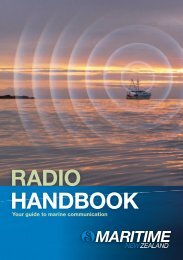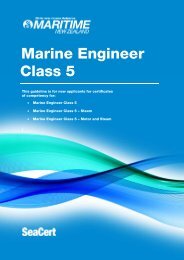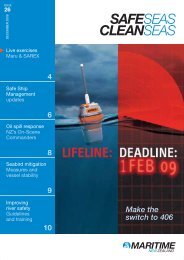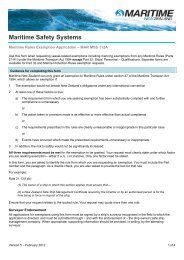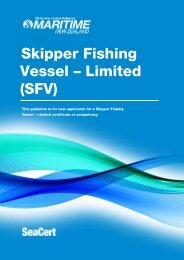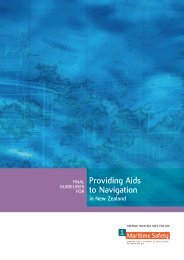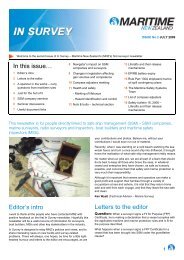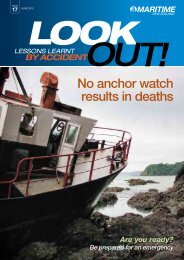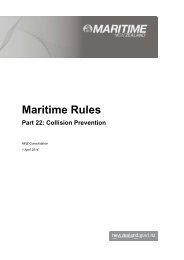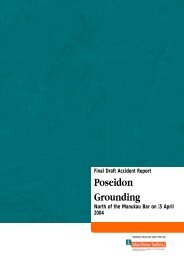New Zealand oil spill response strategy - Maritime New Zealand
New Zealand oil spill response strategy - Maritime New Zealand
New Zealand oil spill response strategy - Maritime New Zealand
You also want an ePaper? Increase the reach of your titles
YUMPU automatically turns print PDFs into web optimized ePapers that Google loves.
The Oil Pollution Advisory Committee<br />
The Director of <strong>Maritime</strong> <strong>New</strong> <strong>Zealand</strong> (the Director) is provided with expert advice from the Oil<br />
Pollution Advisory Committee (OPAC) under the Act. The Director must consult OPAC on certain<br />
specified matters relating to <strong>oil</strong> <strong>spill</strong> <strong>response</strong> and the administration of the Oil Pollution Fund. The<br />
functions and responsibilities of the committee are detailed in Appendix 4.<br />
Strategy Review<br />
The Act requires that the Director formally review the Strategy every five years, though it may prove<br />
necessary to issue interim updates should circumstances change.<br />
Prevention<br />
Oil <strong>spill</strong> <strong>response</strong> and contingency planning is funded under the Act by the Oil Pollution Fund (OPF), a<br />
system of industry levies administered by <strong>Maritime</strong> <strong>New</strong> <strong>Zealand</strong>. The <strong>Maritime</strong> Transport Act (and the<br />
OPF) does not encompass costs associated with preventative measures unless these are directly<br />
associated with the costs of responding to a probable <strong>spill</strong>.<br />
Elsewhere, however, <strong>Maritime</strong> <strong>New</strong> <strong>Zealand</strong> and other government agencies administer and encourage<br />
a wide range of non-OPF preventative measures aimed at reducing incidents and discharges.<br />
10





